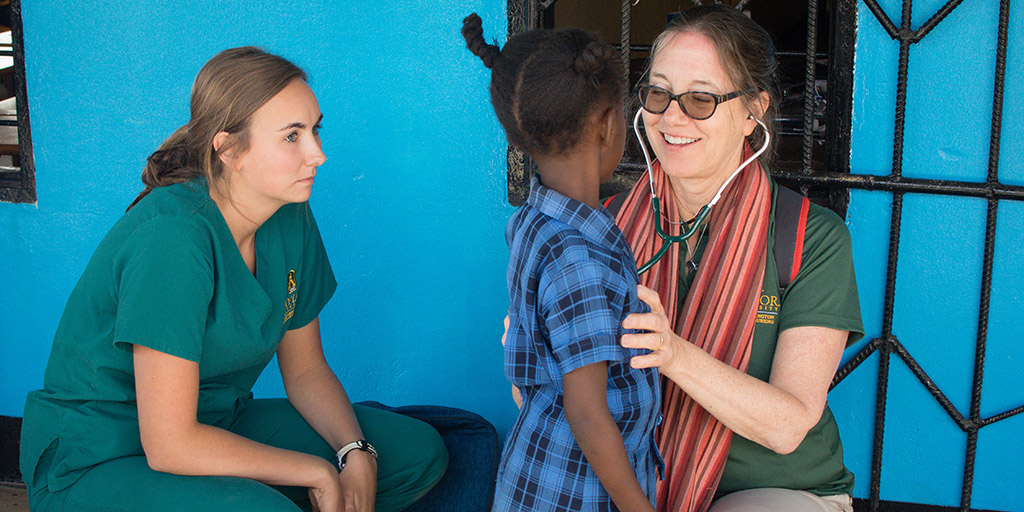Fulbright honor allows Baylor nursing prof to teach, serve and connect nurses across the globe

As the recipient of a recent Fulbright award, Baylor nursing professor Lori Spies has spent much of the last year and a half traveling across the globe — from India to Vietnam to Zambia — researching and training nurses on how to handle noncommunicable diseases such as hypertension.
One of more than 50 Baylor Bears to have earned the prestigious Fulbright recognition since 2001, Dr. Spies has served Baylor’s Louise Herrington School of Nursing (LHSON) for more than a decade, founding LHSON’s active missions program and more recently adding assistant professor to her title. A specialist in global health, Spies’ area of focus made the Fulbright a natural fit.
In Asia and Africa, she worked worked closely with local nurses to better understand their needs. More than 1.3 billion people worldwide suffer from hypertension, and many of the ways U.S. medical practitioners approach the issue aren’t helpful in other nations. Spies is taking what she learned in those countries to create an educational template for nurses and healthcare providers in those countries. In so doing, she and the nurses she’s worked with have the potential to decrease the number of heart attacks and strokes suffered by those who deal with hypertension. For Spies, it demonstrates the important roles nurses play in addressing global issues.
[LISTEN to a recent interview with Dr. Lori Spies from the “Baylor Connections” podcast]
“At some level, nurses are the frontline provider, embedded and engaged with the people in our care,” she says. “Nurses are a hidden aspect in all parts of healthcare. If we’re going to make significant changes, we need to engage the community, but we also need to have advocates for healthy behaviors and patient-centered care at all levels. So nurses are ideally positioned to be the front-line along the bedside, but also to take their knowledge and inform people more broadly and at the policy level.
“I don’t want to lead a trip where we’re going in and putting a band-aid on a problem. If my students can partner, within an existing infrastructure, and get to know local people, I think it strengthens our respect for the country while increasing our awareness. I want my students to be compassionate in the care they give, but also collegial as they develop responses.”
Sic ’em, Dr. Spies!

